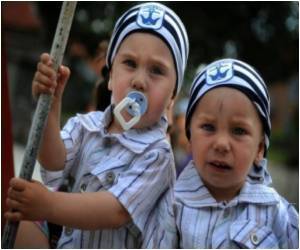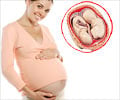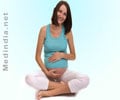
"Having twins will not make you stronger or healthier, but stronger, healthier women are more likely to have twins naturally," says Shannen Robson, the study's first author and a recent Ph.D. graduate in anthropology at the University of Utah.
Smith adds: "The prevailing view is that the burden of childbearing on women is heavier when bearing twins. But we found the opposite: women who naturally bear twins in fact live longer and are actually more fertile."
The study, funded by the National Institute on Aging, was scheduled for online publication Wednesday, May 11 in the journal Proceedings of the Royal Society B.
The research was based on data for 58,786 non-polygamous Utah women who were born between 1807 and 1899, lived to age 50 and married once after 1850 to husbands who were alive when their wives were 50. Of those, 4,603 were the mothers of twins and 54,183 gave birth only to one baby at a time.
The records came from the Utah Population Database, which is among the world's most comprehensive computerized genealogies and includes vital records of largely Mormon migrants to Utah and their Utah descendants. The database includes information on 6.4 million people from the early 1800s to present.
Advertisement
The Implications of Twinning as an Indicator of Health
Advertisement
"This study has been able to identify and it's a fairly novel result another important factor that contributes to health and longevity in later years, namely, that women bearing twins appear to be healthier," Smith says. "That innate healthiness is contributing to their ability to have twins, and it is also contributing to their longevity."
However, he emphasizes that the study looked at women who lived past menopause, not those who died earlier, perhaps in childbirth. "We do know women who have twins, triplets and so on do have medical complications and their health is sometimes compromised," Smith says. "But we are talking about the long view."
"Women having children are fundamentally young and healthy," he adds. "So the risk of dying in childbirth is quite low. The women who have twins have a somewhat elevated risk of mortality over those [child-bearing] years, but the vast majority of those women reach age 50, and we're able to observe that they have healthier lives."
While twinning sometime runs in families, previous studies have shown environmental factors are more important factors such as greater health in the mother or childbearing at later ages, which are more likely to produce twins.
Smith says that many people today correctly "do things to make themselves have healthier, longer lives. But there's a certain aspect of how long you're going to live and how healthy you're going to be that is innate basically affected by your biological makeup." The study's twin moms "didn't choose to have this capacity. They just did."
The study was designed to look at the effects of natural births of twins, thus the study population lived before birth control and treatments for infertility were available.
"We're saying that women who twin naturally have something that makes them healthier," says Smith. "We are able to see that in these ancestral women because they had many children and had no fertility treatments. They have left a legacy through their descendants who may all share this desirable trait of being healthier."
For women today "who have access to infertility treatment and who have twins which isn't uncommon we simply don't know how that will affect their health," he adds. "We're not encouraging women to actively seek having twins so they can live longer. It's not a conclusion we can draw."
The Findings
The study also distinguished women who were born between 1870 and 1899 from those born before 1870, when the start of modern urbanization in Utah eased pressures for farm wives to start bearing children at a young age to help with chores. Twin moms were more physically fit in both groups than singleton-only moms.
The researchers didn't study triplets or other multiple births because there were too few to analyze, even in such a large population sample. The study didn't distinguish fraternal from identical twins because the database didn't either. Identical twins are rare.
The researchers also adjusted the data to statistically control for various factors, including the fact twinning increases at older maternal ages and religious affiliation, since Mormons in Utah historically have more children than non-Mormons.
They found that compared with mothers of singleton births:
- Mothers of twins lived longer after menopause. For women born before 1870, their annual risk of dying after age 50 was a statistically significant 7.6 percent lower than for moms of singletons. For twinning women born between 1870 and 1899, the annual risk of dying after age 50 was 3.3 percent lower than for moms who didn't have twins, but wasn't statistically significant.
A woman's innate robustness the factor that made twins more likely was more important before 1870 during pioneer times. "When you're a tougher woman, that toughness is more readily apparent when you are tested by adversity," Smith says.
- Women who delivered twins had more children than expected due to simply the birth of twins. Mothers in the pre-1870 group averaged 8.39 children while women in the 1870-1899 group averaged 5.72 kids. Mothers of twins averaged 1.9 and 2.3 more children, respectively, than average after controlling for various factors.
"By having twins, you are having one more child by definition, but they exceed the definition and thus had more single births as well," even after controlling for twin moms who had more single births to replace twins who died, Robson says.
- Mothers of twins went a shorter time between births. For all moms in the study, the average interval between births was 2.62 years for women born before 1870 and 3.24 years for women born 1870-1899. For both groups, moms of twins averaged two weeks less between births a time that seems short but is nonetheless important. "Shorter birth interval is an indication of the physical health of the mother," Smith said.
- The reproductive span age at last birth minus age at first birth was longer for mothers of twins, even when controlling for age of marriage. For women born before 1870, moms of twins had average reproductive spans of 18 years and four months versus 18 years for singleton-only moms. For women born 1870-1899, moms of twins averaged reproductive spans of 14 years 11 months versus 14 years for singleton moms. Both results were statistically significant.
- Moms of twins also were older at the time of their last birth. The age at last birth averaged 39.7 years for women born before 1870, and 36.2 years for women born during 1870-1899. Moms of twins had their last births 4.8 months later and 14 months later, respectively.
Source-Eurekalert











